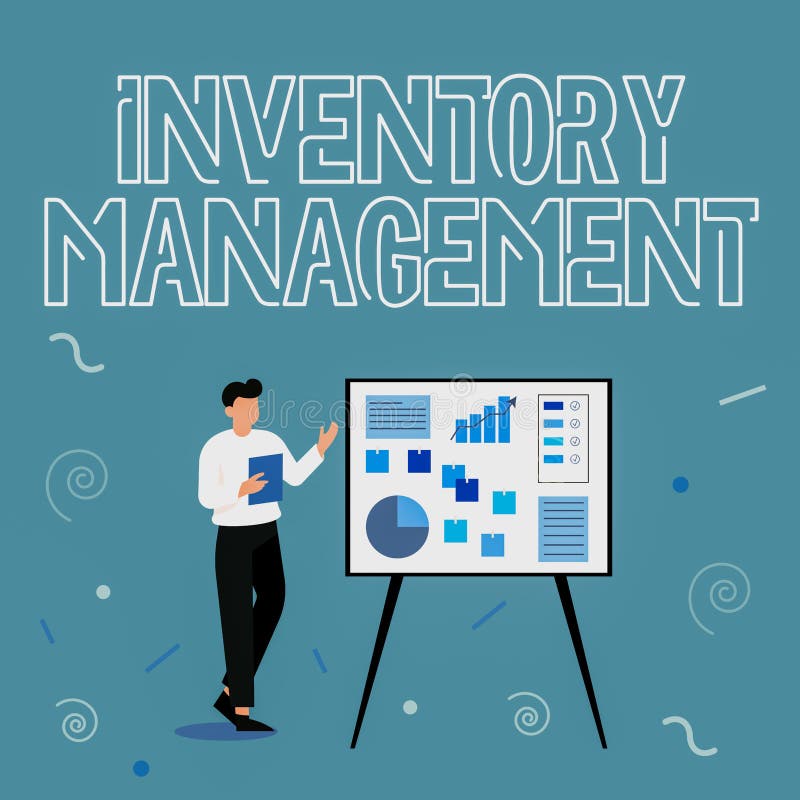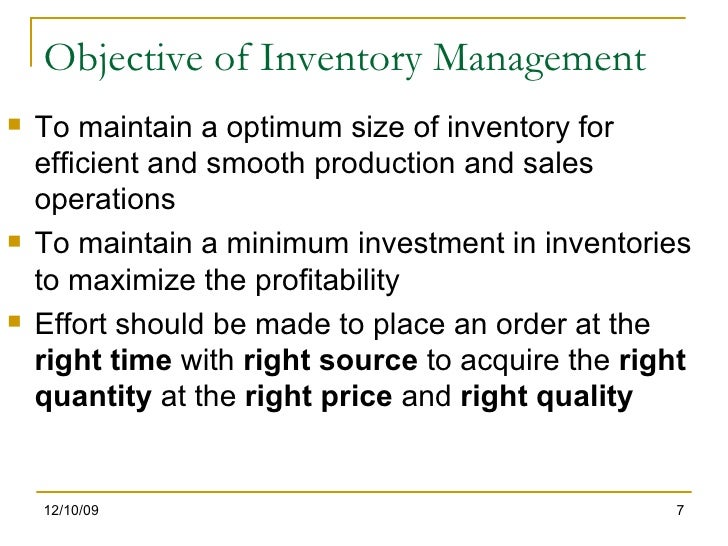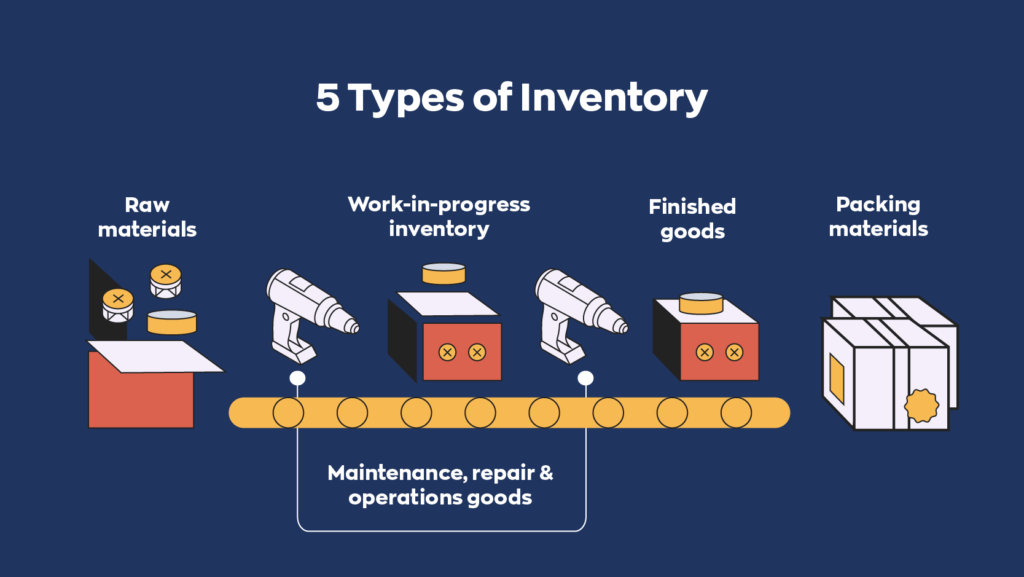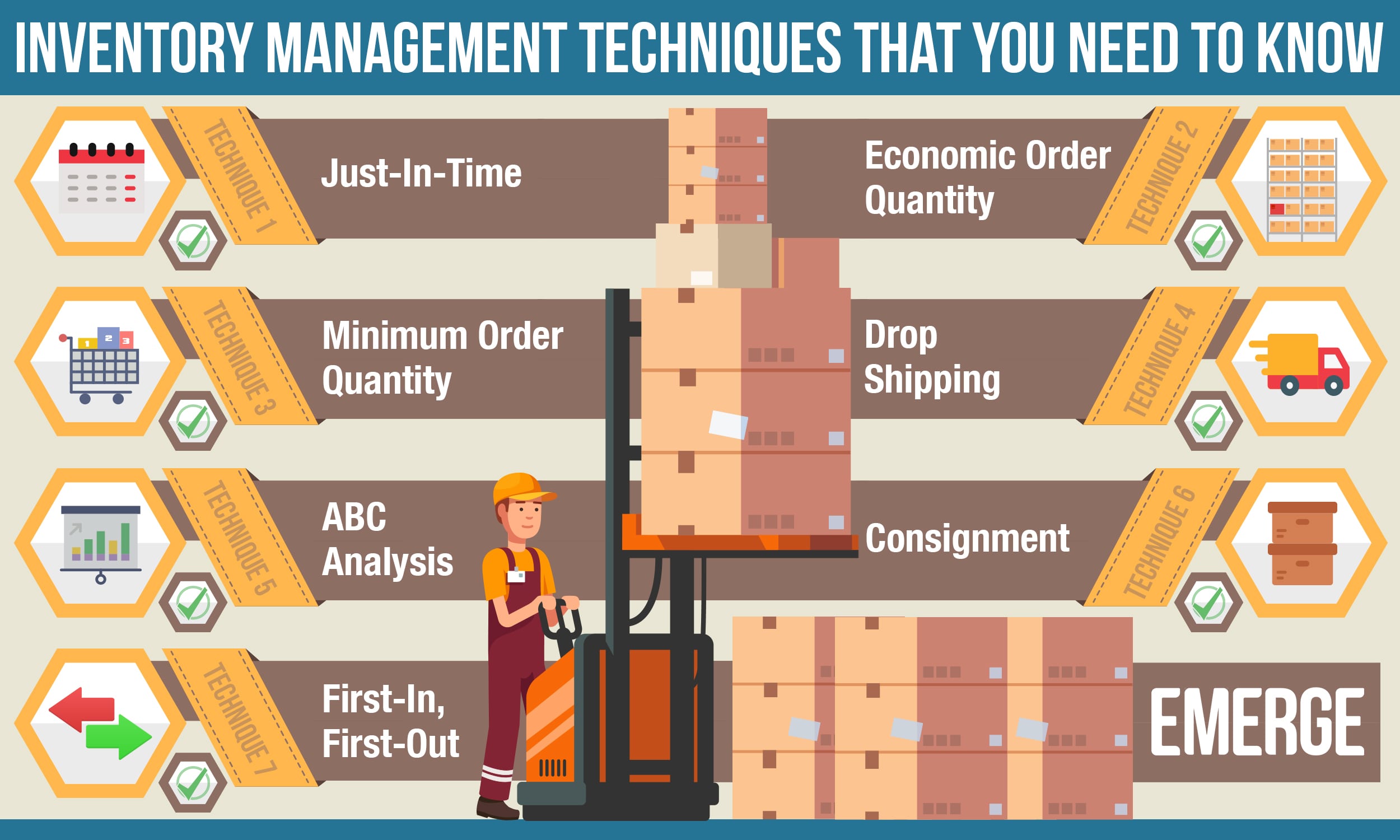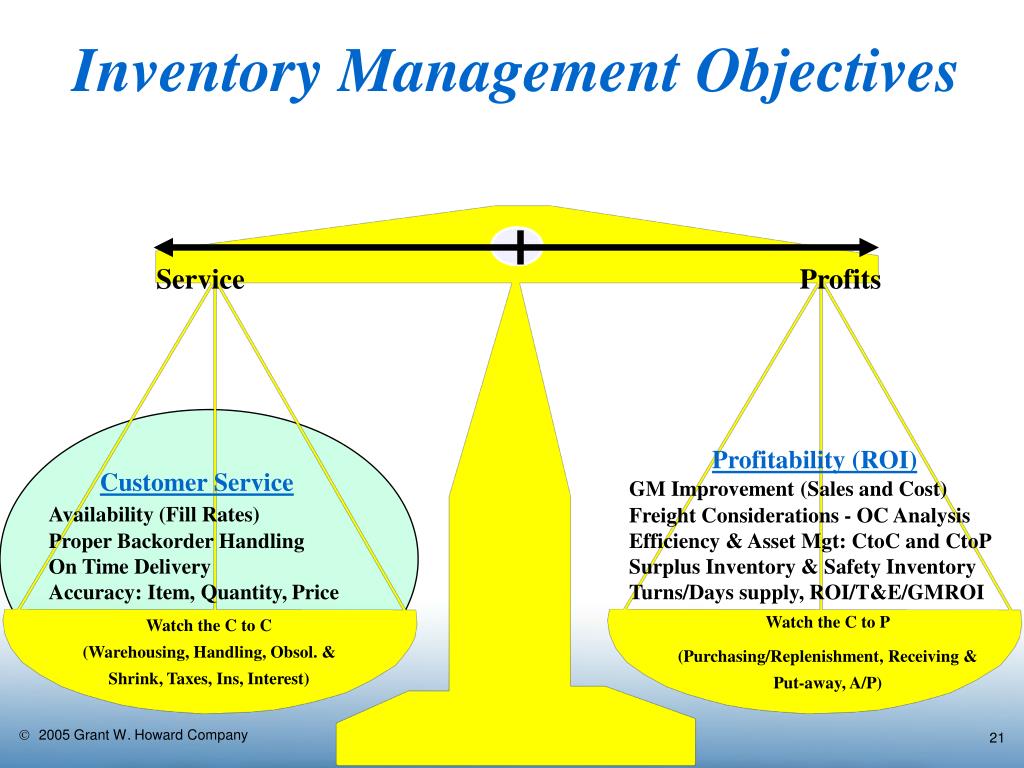Inventory Management Introduction,objectives ,needs, Scope Presentation
| Introduction | ||
|---|---|---|
| Inventory management is the process of overseeing and controlling the flow of goods in and out of a company. It involves monitoring stock levels, tracking inventory movement, and optimizing inventory levels. Effective inventory management is crucial for ensuring customer satisfaction, minimizing costs, and improving overall business performance. | ||
| 1 | ||
| Objectives | ||
|---|---|---|
| The main objective of inventory management is to ensure that the right amount of inventory is available at the right time. It aims to minimize stockouts and overstock situations, which can lead to lost sales or increased holding costs. Another objective is to improve operational efficiency by reducing lead times and improving order fulfillment. | ||
| 2 | ||
| Needs | ||
|---|---|---|
| Businesses need inventory management to maintain a smooth production and supply chain process. It helps in meeting customer demand by ensuring that products are available when needed. Inventory management is also important for accurate financial reporting and controlling costs related to inventory. | ||
| 3 | ||
| Scope | ||
|---|---|---|
| The scope of inventory management includes managing raw materials, work-in-progress, and finished goods. It involves forecasting demand, setting optimal inventory levels, and implementing inventory control systems. Inventory management also encompasses activities such as order processing, stock replenishment, and inventory valuation. | ||
| 4 | ||
| Introduction | ||
|---|---|---|
| Inventory management is the process of overseeing and controlling the flow of goods in and out of a company. It involves monitoring stock levels, tracking inventory movement, and optimizing inventory levels. Effective inventory management is crucial for ensuring customer satisfaction, minimizing costs, and improving overall business performance. | ||
| 5 | ||
| Objectives | ||
|---|---|---|
| The main objective of inventory management is to ensure that the right amount of inventory is available at the right time. It aims to minimize stockouts and overstock situations, which can lead to lost sales or increased holding costs. Another objective is to improve operational efficiency by reducing lead times and improving order fulfillment. | ||
| 6 | ||
| Needs | ||
|---|---|---|
| Businesses need inventory management to maintain a smooth production and supply chain process. It helps in meeting customer demand by ensuring that products are available when needed. Inventory management is also important for accurate financial reporting and controlling costs related to inventory. | ||
| 7 | ||
| Scope | ||
|---|---|---|
| The scope of inventory management includes managing raw materials, work-in-progress, and finished goods. It involves forecasting demand, setting optimal inventory levels, and implementing inventory control systems. Inventory management also encompasses activities such as order processing, stock replenishment, and inventory valuation. | ||
| 8 | ||
| Introduction | ||
|---|---|---|
| Inventory management is the process of overseeing and controlling the flow of goods in and out of a company. It involves monitoring stock levels, tracking inventory movement, and optimizing inventory levels. Effective inventory management is crucial for ensuring customer satisfaction, minimizing costs, and improving overall business performance. | ||
| 9 | ||
| Objectives | ||
|---|---|---|
| The main objective of inventory management is to ensure that the right amount of inventory is available at the right time. It aims to minimize stockouts and overstock situations, which can lead to lost sales or increased holding costs. Another objective is to improve operational efficiency by reducing lead times and improving order fulfillment. | ||
| 10 | ||
| References (download PPTX file for details) | ||
|---|---|---|
| Reference 1: Smith, J. (2019). Inventory mana... Reference 2: Johnson, A. (2018). The importan... Reference 3: Brown, R. (2020). Inventory cont... |  | |
| 11 | ||
